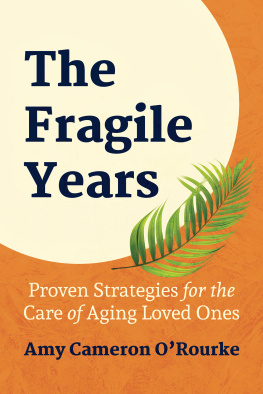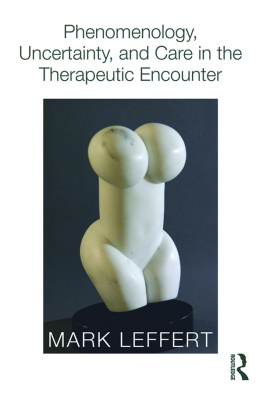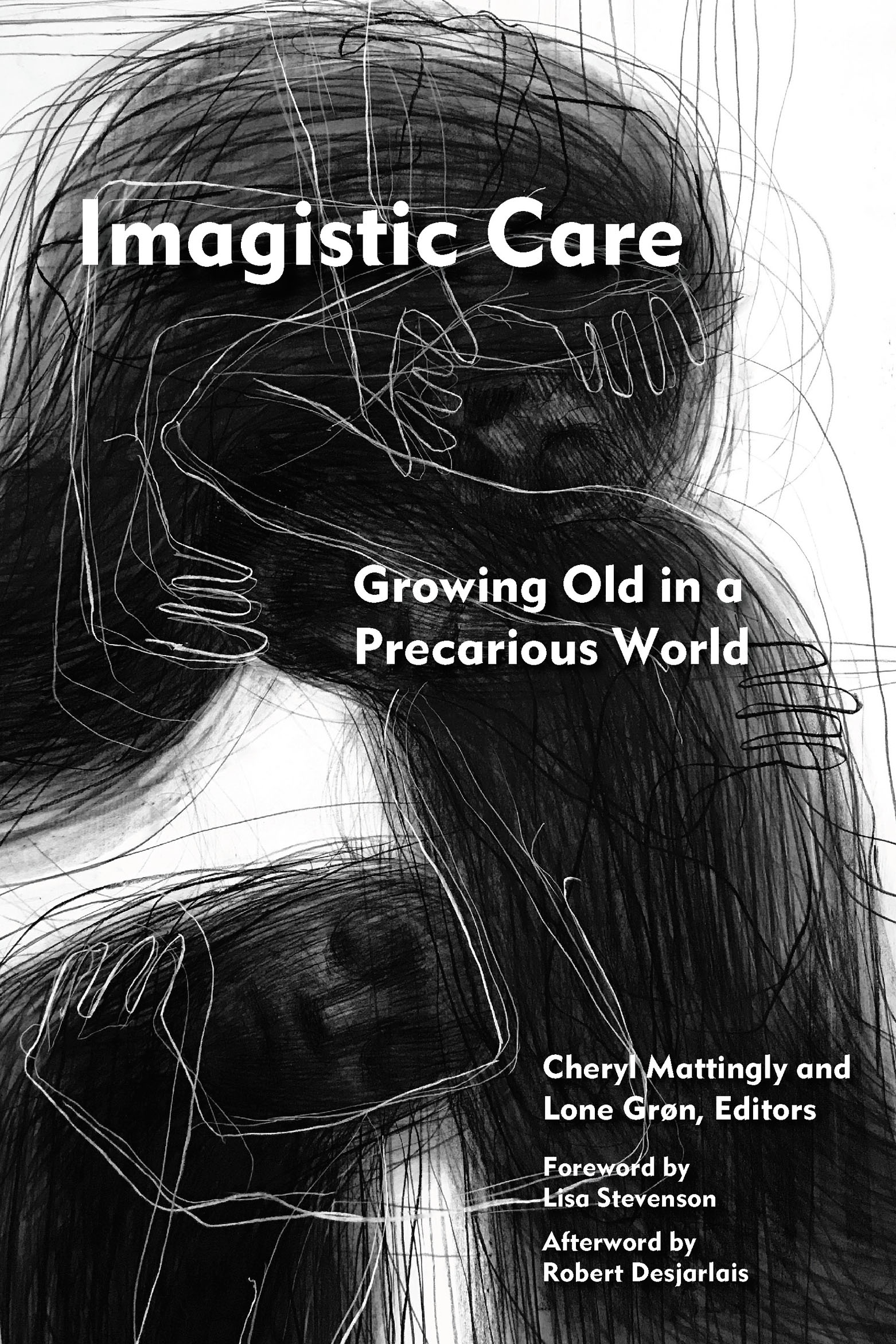Contents
List of Figures
Guide
Pagebreaks of the Print Version
Thinking from Elsewhere
Series editors:
Clara Han, Johns Hopkins University
Bhrigupati Singh, Ashoka University and Brown University
Andrew Brandel, Harvard University
International Advisory Board:
Roma Chatterji, University of Delhi
Veena Das, Johns Hopkins University
Robert Desjarlais, Sarah Lawrence College
Harri Englund, Cambridge University
Didier Fassin, Institute for Advanced Study, Princeton
Angela Garcia, Stanford University
Junko Kitanaka, Keio University
Eduardo Kohn, McGill University
Heonik Kwon, Cambridge University
Michael Lambek, University of Toronto
Deepak Mehta, Ashoka University, Sonepat
Amira Mittermaier, University of Toronto
Sameena Mulla, Emory University
Marjorie Murray, Pontificia Universidad Catlica de Chile
Young-Gyung Paik, Jeju National University
Sarah Pinto, Tufts University
Michael Puett, Harvard University
Fiona Ross, University of Cape Town
Lisa Stevenson, McGill University
IMAGISTIC CARE
Growing Old in a Precarious World
CHERYL MATTINGLY AND LONE GRN, EDITORS
Drawings by Maria Speyer
Foreword by Lisa Stevenson
Afterword by Robert Desjarlais
FORDHAM UNIVERSITY PRESS
New York 2022
Copyright 2022 Fordham University Press
All rights reserved. No part of this publication may be reproduced, stored in a retrieval system, or transmitted in any form or by any meanselectronic, mechanical, photocopy, recording, or any otherexcept for brief quotations in printed reviews, without the prior permission of the publisher.
Fordham University Press has no responsibility for the persistence or accuracy of URLs for external or third-party Internet websites referred to in this publication and does not guarantee that any content on such websites is, or will remain, accurate or appropriate.
Fordham University Press also publishes its books in a variety of electronic formats. Some content that appears in print may not be available in electronic books.
Visit us online at www.fordhampress.com.
Library of Congress Cataloging-in-Publication Data available online at https://catalog.loc.gov.
Printed in the United States of America
24 23 22 5 4 3 2 1
First edition
CONTENTS
FOREWORD
LISA STEVENSON
Its strange, I know, to begin a foreword to an extraordinary book about care at the end of life with some reflections on beginnings. But still, its the question that preoccupies me as I read the chapters and look at the images in this book: What can we say about what it is to begin, and to begin again? And what might the answer to that question have to do with the end and with endings more generally? In a touching essay about the painting of Paul Czanne, Maurice Merleau-Ponty suggests that Czannes paintings were his attempt to depict matter as it takes on form, the birth of order through spontaneous organization (1964, 13). We have only to think of Czannes paintings of the trees that seem to be in the process of disentangling themselves from the blue streaks of sky around them to see what Merleau-Ponty means. What he particularly admired in Czannes work was his ability to make visible, or slow down, through his painterly form of attention, the coming-into-focus of the world. This, I will argue, is what the chapters and drawings in this volume also do.
This question of beginnings also preoccupied Walter Benjamin. In an essay on the history of photography he suggests that while it is possible, however roughly, to describe the way somebody walks, it is impossible to say anything about that fraction of a second when a person starts to walk (Benjamin 1972, 7). For Benjamin, the moment of beginning to walk is an example of a perceptual experience that resides in our optical unconscious (7), one that only photography(and previously psychoanalysis) might bring to our attention. I wonder what might have happened had Czanne tried his painterly hand at portraying the instant someone begins to walk, or betterbegins to speak.
Merleau-Ponty, in the essay on Czanne, is also interested in this kind of beginningwhat we might call the beginning of expression. Not only does Czannes art attempt to portray the beginnings of visionor what I am calling a coming-to-seebut the very act of putting brush to canvas (to make visible that process of coming-to-see) is also its own beginning. As Merleau-Ponty puts it, Czannes difficulties are those of the first word. He considered himself powerless because he was not omnipotent, because he was not God and wanted nevertheless to portray the world to make visible how the world touches us (1964, 19). Merleau-Ponty thus locates the story of Genesis (of the first word) in each of our lives and asks, What is it to begin to speak? Or to begin to paint? Or evento begin to howl? And importantly for this volume, What is it to begin at the end?
In a theater workshop for Colombian migrants to Ecuador, one of the participants was a woman who was living in a kind of prolonged despair about the loss of her family, the health of her child, and the seeming impossibility of a return to the everyday. At one point, my friendanthropologist and theater director Cristiana Giordanoasked each person in the group to interact in some way with the theatrical affordances of the room, beginning with the simple statement I begin and ending with I end. People stood inside doorframes, slid along the floor, rapped on the glass windows. When it was her turn, this woman was stymied, seemingly unable to begin. Then she said the required words, I begin, walked over to the wall, and slowly moved her finger along the smooth crevice between the painted bricks. When she had finished, she began to weep, and a friend caught her jubilantly in her arms. She had begun. Tracing the line between the bricks was a first word.
It seems to me that in his essay on Czanne, Merleau-Ponty is interested in that moment when tracing ones finger along the wall is also a first word. Its the point where perceiving the world and the possibility of expression meetthe point where to see or perceive is also to express. So, when Czanne says of his process of painting, The landscape thinks itself in me and I am its consciousness, Merleau-Ponty adds, [Art] is a process of expressing (1964, 17). Seeing (becoming conscious) is a process of expressing, and expression a process of seeing. Merleau-Ponty continues, There is nothing but a vague fever before the act of artistic expression, and only the work itself, completed and understood, is proof that there was something rather than nothing to be said (19).
Merleau-Ponty acknowledges that in this attention to beginningsthis attention to what it is to come-to-see, this attention to the first wordso much is at stake, and that Czanne often wondered if he were equal to the task. There is a sense that for Merleau-Ponty, Czanne is working at the beginning of the worldperhaps one could say at the beginning-end of the world, at the point where life shades into death. In what is, for me, one of the most important lines of the essay, he writes, If one looks at the work of other painters after seeing Czannes paintings, one feels somehow relaxed, just as conversations resumed after a period of mourning mask the absolute change and give back to the survivors their solidity (Merleau-Ponty 1964, 16).








